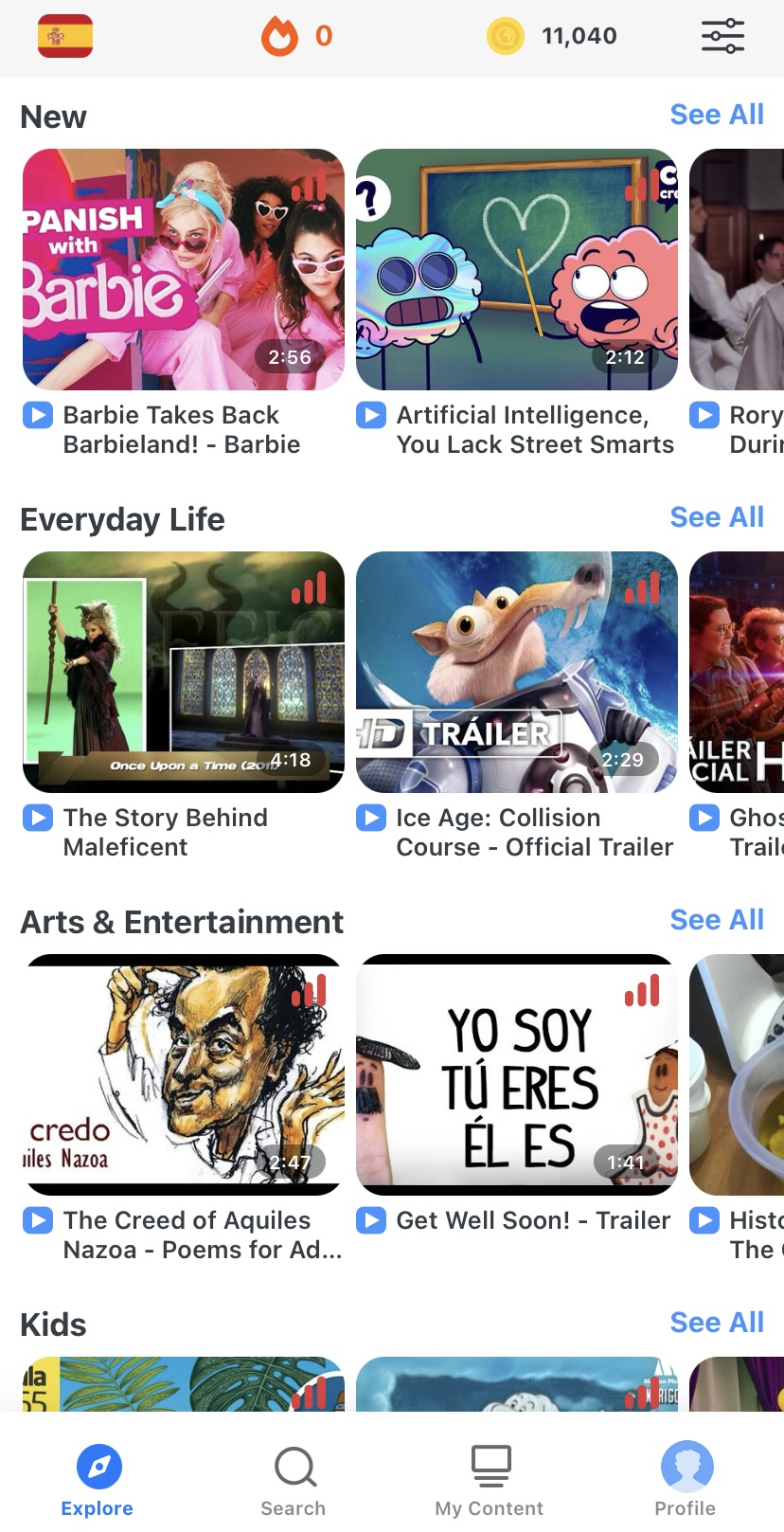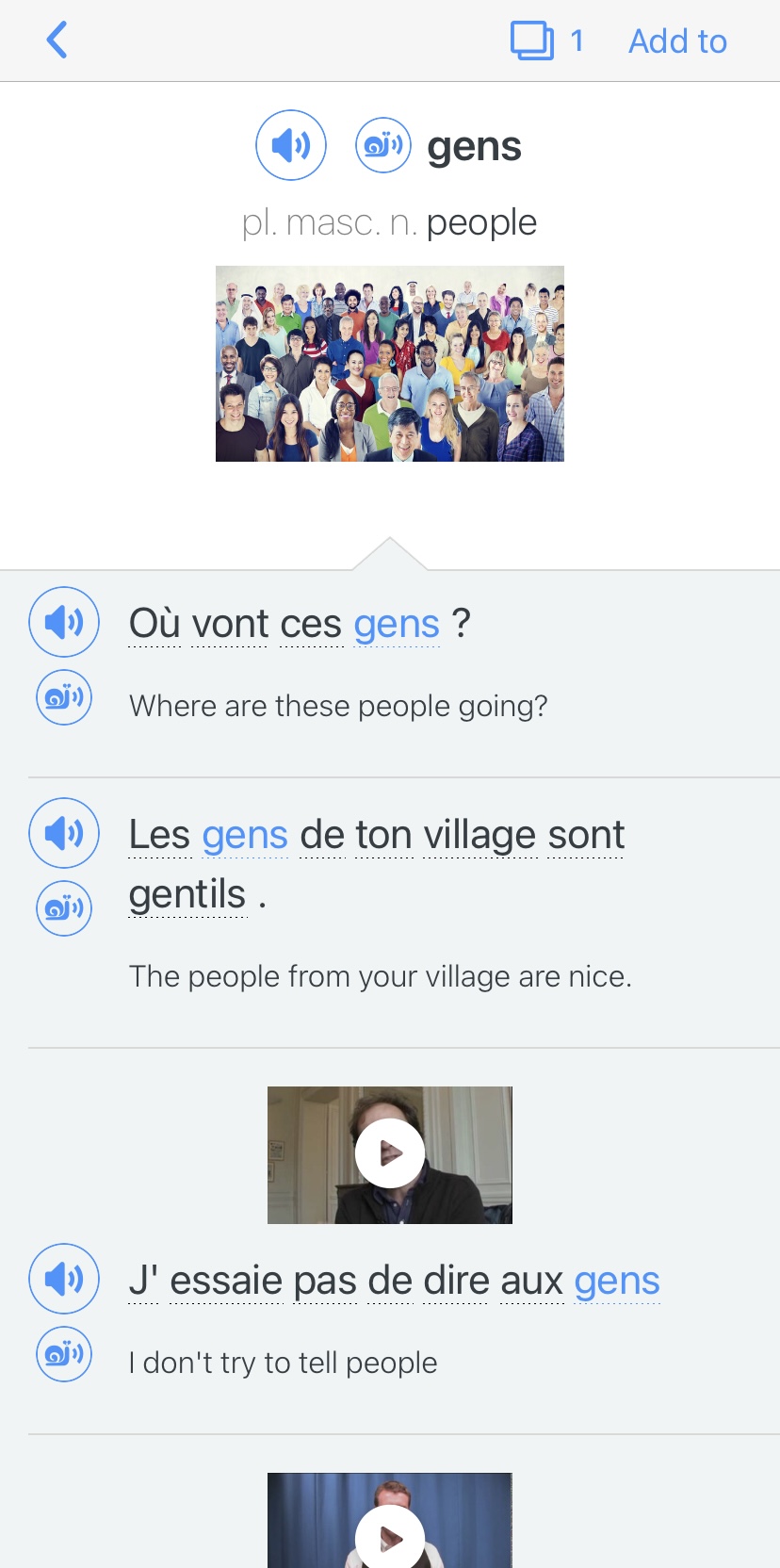Why Listening is Important for Language Learners

Research shows that when we communicate, about 40-50% of our time is spent listening. That’s why listening is important in language learning—we spend almost half our time doing it. So why is it still so hard to listen to a native speaker talking?
This frustrating roadblock is quite common, and the solution is to spend more time listening effectively in your second language. Honing your listening skills is incredibly important as an adult language learner, which is a key to acquiring languages faster, as outlined in the FluentU YouTube video below:
Download: This blog post is available as a convenient and portable PDF that you can take anywhere. Click here to get a copy. (Download)
1. Listening is Actually an Active Process
If you’ve ever sat in a group of people speaking a foreign language, you’ll be familiar with the uncomfortable feeling that you should be joining in. You feel like, if you’re not saying something, you’re not really engaging in the conversation.
Nothing could be further from the truth. The problem is that you’re confusing a silent process with a passive process.
Listening is a very active process, despite the fact that you’re not “doing” anything. That’s why you’re so tired when you go home after a social event in another language.
Getting over the feeling that we’re “doing nothing” is a key step towards listening effectively.
A further solution is to employ active listening techniques, to remind yourself and others that you’re involved in the conversation even if you don’t speak much.
Here are some tips to show that you’re actively listening:
- Make eye contact with the person who’s talking.
- Lean forward slightly to show interest. (If you’re actually listening, this should be natural.)
- Nod your head slightly to show you’re understanding.
- Make agreeing noises and nod your head if you agree with something they’ve said.
- Don’t look or be distracted by fidgeting, playing with your phone or looking off into the distance.
2. Listening Prepares You for Speaking
Children who learn a second language often go through a “silent period” where they don’t say anything. Language teachers and researchers haven’t totally agreed whether it’s a necessary stage of language learning, or how long it should be. But they do agree that many children experience it.
It’s fair to say that most adults don’t go through a silent period at all. We often try to jump straight into speaking.
The problem with trying to speak from the beginning is that a period of silent listening can actually be hugely beneficial.
One big reason is that speaking can be quite a nerve-racking experience. I find it as stressful as performing on stage. As new learners, we’re thinking so much about what we should say next that we don’t fully experience what the other person has said. We suffer from “task overload.”
Allowing yourself to be silent lets you get the most from listening.
However, speaking successfully in a foreign language can also be very rewarding. Speaking motivates us to continue learning. And we wouldn’t want to lose our motivation, would we?
The answer isn’t to give up speaking altogether. It’s to give ourselves permission to be silent, and not beat ourselves up if we don’t say much. Speak when you can, but you don’t have to force it.
We can benefit both from the motivation of speaking and the listening benefits of being quiet for a while.
3. Listening Helps You Internalize Language Rules
Would it surprise you to learn that your short-term memory is even shorter in a foreign language?
When you think about it, it makes sense. How often have you forgotten what someone has just said in your target language? For me, at least, it happens a lot more than in my native tongue.
Listening is a vital step in overcoming this problem.
But why does it happen?
Not to get into too much detail (although it is fascinating), this effect might be due to how our short-term memory works.
When we listen to someone talking, our brain starts processing the information by “segmenting” it into small chunks for our short-term memory. It splits them up based on our knowledge of the “rules” for how the language is spoken.
Instead of storing the words “a green goldfish,” for instance, our brain might convert those words into an image of a green goldfish for storage.
In a foreign language, we aren’t as familiar with the “segmentation rules” for how our target language is spoken. Our short-term memory has to store all the words individually.
One reason listening is important in language learning is that it helps us become familiar with these segmentation rules. And not only will it boost your understanding, it will ultimately improve your speaking, too.
Learning segmentation rules is usually an unconscious process, so the easiest way is to get lots of listening practice. You can do that by:
- Watching television and films in your target language
- Listening to an audiobook and reading along
- Attending events with your language exchange partner and focusing on listening
- Listening to the radio in your target language
- Watching videos online in your target language
The key to successful language learning is to find authentic media in your target language that you enjoy listening to, and then build your learning around that.
For example, FluentU is an app and program that teaches you a language using web videos, immersing you in authentic content from native speakers.
FluentU takes authentic videos—like music videos, movie trailers, news and inspiring talks—and turns them into personalized language learning lessons.
You can try FluentU for free for 2 weeks. Check out the website or download the iOS app or Android app.
P.S. Click here to take advantage of our current sale! (Expires at the end of this month.)
This kind of learning helps you get a lot of valuable practice listening to the language while also comprehending it, increasing your confidence in your listening skills.
4. To Practice Listening for the Right Information
If you learned a language in school, what listening strategy were you taught?
I remember listening exams going like this: Listen to a tape (yes, a tape!) and then translate what you heard. Specifics were important. You would lose marks if you messed up the gender of a word, for example.
As far as I can see, that’s still how listening is taught in my home country.
Language researchers call this a bottom-up listening strategy. It means carefully listening to each word, pronoun and sentence structure to work out what has been said. Though it’s okay for classroom use, it is unfortunately not a complete listening strategy for use in the real world.
In the real world, you can’t spend all your listening energy focusing on specific grammar while people speak. They’ll keep talking and you’ll be lost.
Top-down listening, on the other hand, is a great strategy to add more understanding of what’s being said. Where bottom-up strategies focus on words, top-down strategies focus on concepts. Of course, both are necessary to be an effective listener.
To listen using top-down strategies, you need to learn a little about the spoken topic beforehand. Here are suggestions for implementing this type of strategy for some common activities:
- If you’re going to see a movie or theater play in a foreign language, read the story first.
- Read up on the topic before going to see a presentation.
- Try reading about or predicting the content of an audio passage before you listen to it.
- Hang out with a friend who repeats the same anecdote to different people.
These techniques will get your brain focusing on concepts and not just specific words when you’re actually listening. And in the cases where you know or learn the story beforehand, your comprehension will go up dramatically.
5. To Continue Improving Your Listening Abilities
Finally, one thing that we often neglect when listening in another language is to check exactly how much we’ve understood.
Beyond a certain level of language ability, we often “get the gist” of what was said. However, sometimes we haven’t understood as much as we think.
Next time you listen to something in your target language, try these six short, easy exercises to prove to yourself that you’ve really understood what was said:
- Draw a picture of what was said.
- Ask yourself questions about what was said and try to answer them.
- Provide a summary of what was said.
- Suggest what might come next in the “story.”
- Translate what was said into another language.
- “Talk back” to the speaker in imaginary conversation (I do this when listening to the radio, for example).
As you can see, there are quite a few reasons why listening is important in language learning.
Now that you know what they are, however, it will be more motivating to engage in different kinds of listening practice.
And when you follow the exercises to check how much you’ve understood, you’ll be amazed at the change!
Download: This blog post is available as a convenient and portable PDF that you can take anywhere. Click here to get a copy. (Download)
And One More Thing...
If you're like me and love learning languages through real-world content, FluentU is a game-changer. With FluentU, you're not just memorizing words—you’re learning how native speakers actually use them.
With our newest feature, you can now bring FluentU’s interactive tools to any subtitled content on YouTube or Netflix—or even import YouTube videos directly into your FluentU account!
You’ll also get access to a huge variety of content in our curated video library, from movie trailers to news clips, music videos, and more. The best part? FluentU makes this native-language content accessible for learners of all levels.
While you watch, you can tap on any word in the interactive subtitles to see a definition, an image, audio, and useful example sentences. Want to practice new words later? Add them to your flashcards with one click. No more pausing to look up and write down new words!
And FluentU helps you actually remember what you learn with personalized quizzes, plenty of example sentences, and extra practice with the words you find difficult.
Ready to start learning in a more natural, immersive way? Try FluentU on your computer or tablet, or download the FluentU app from the App Store or Google Play. Click here to take advantage of our current sale! (Expires at the end of this month.)












